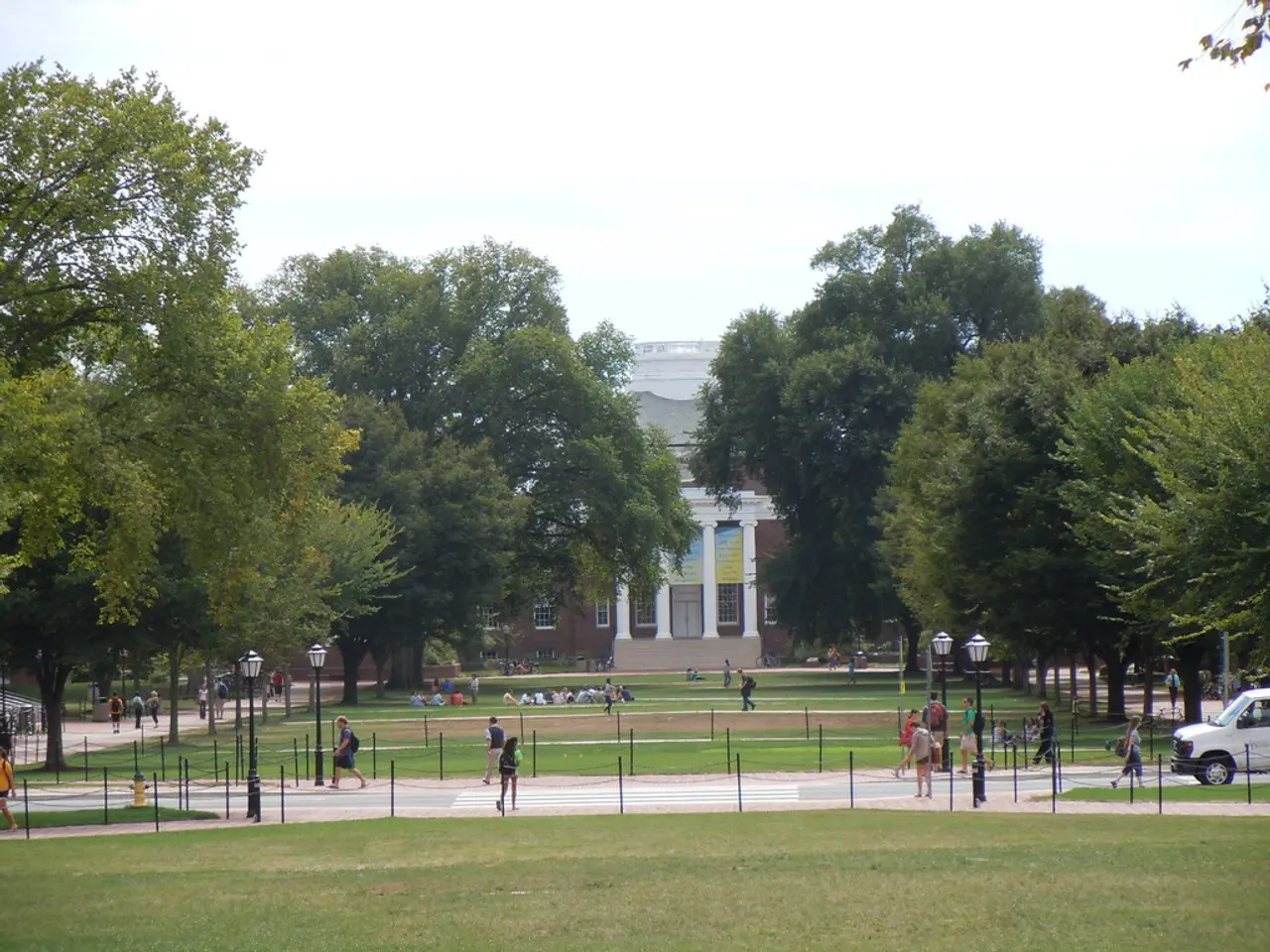Exposing the Misconception of Financial Support
In the world of academia, funding can often be a make-or-break factor for independent projects. For Rafi Lehmann, the Social Sciences Correspondent, this reality was recently brought to light during his winter break plans to translate Yiddish poetry in archives in New York City.
Unfortunately, the Lewis Center for the Arts at Princeton informed him that they do not offer winter funding for such projects. However, this setback did not deter him. Instead, it sparked a journey to uncover alternative funding sources.
Princeton, while a generous and reliable sponsor, is not an endless well of funds. Projects are not handed out on a blank check, and hitting a dead end on campus can be an opportunity to think more creatively about project implementation.
Rafi's persistence paid off when he discovered an alternative project through a non-Princeton institution. This fully-funded winter scholarship for artists and students to study Yiddish history and produce art inspired by the organization's archives proved to be more exciting than his original proposal to Princeton.
For those seeking funding opportunities for independent projects outside Princeton's Student Activities Funding Engine, there are several avenues to explore.
- Independent Research Fellowships at other colleges, like Carleton College, offer funding for independent research or creative projects, sometimes up to $5,000 for summer projects or smaller amounts for winter breaks. Similar programs might exist at other institutions with open applications for independent student projects.
- University arts or project grants, such as Emory Arts Project Grants, support original creative student projects with funding up to $1,000. These grants often prioritize experimental or presentation-focused projects and may apply to individual students or groups.
- Institutional, private, and government grants are widely available for students, often based on factors like field of study, demographic group, or project type. They can be used for educational expenses including research or creative work.
- Specialized writing or creative grants, like the Miles Morland Foundation Scholarships or the SCBWI Indie Published Pre-Publication Grant, provide significant funding for writers and artists working independently.
- Grants for vocational exploration or individual scholarship projects, such as those offered by CIC’s NetVUE program, fund innovative academic or educational projects, with awards ranging from $5,000 to $25,000 for research, released time, travel, and materials.
In addition to these sources, students can contact their institution’s office of undergraduate research, arts, or fellowships for local or external grant information. Searching databases and websites dedicated to student grants and fellowships, like scholarships.com, can also yield results. Exploring private foundations and discipline-specific organizations that support independent projects is another strategy. Networking with faculty mentors who may have knowledge of lesser-known or departmental funding can also be beneficial.
Learning how to navigate funding opportunities and write strong proposals are essential skills for the post-Princeton world. As Rafi's experience demonstrates, perseverance and creativity can lead to unexpected and exciting opportunities.
Lastly, it's important to remember that the Funding Fairy is not real, and funding at Princeton is not awarded as liberally as imagined. Students who are undeclared or undecided are still eligible for departmental funding.
[1] Carleton College: https://carleton.edu/academics/research/undergraduate-research/fellowships/ [2] Emory Arts Project Grants: https://arts.emory.edu/grants/project-grants/ [3] Institutional, private, and government grants: https://www.fastweb.com/scholarship-search/grants [4] Specialized writing or creative grants: https://milesmorlandfoundation.com/; https://www.scbwi.org/grants-and-awards/ [5] CIC’s NetVUE program: https://netvue.cic.edu/funding/
- Despite the Lewis Center for the Arts at Princeton not offering winter funding for independent projects, such as Rafi Lehmann's plan to translate Yiddish poetry, the pursuit of alternative funding sources can lead to exciting opportunities outside traditional avenues.
- Personal growth and self-development through independent work can be aided by exploring various funding opportunities, such as university arts or project grants, institutional, private, and government grants, specialized writing or creative grants, or grants for vocational exploration.




